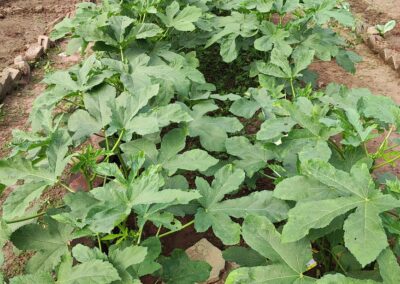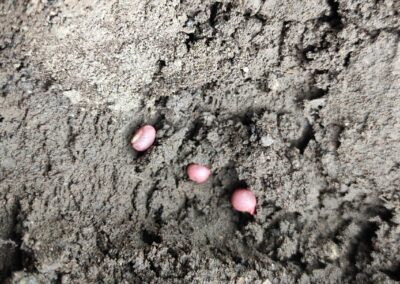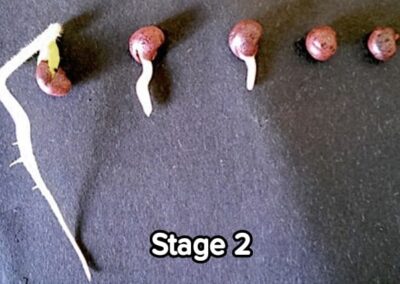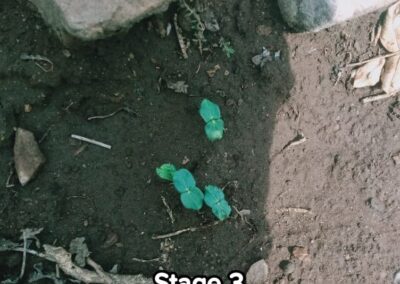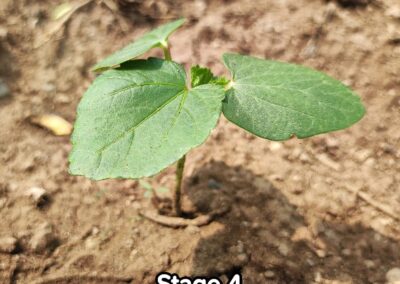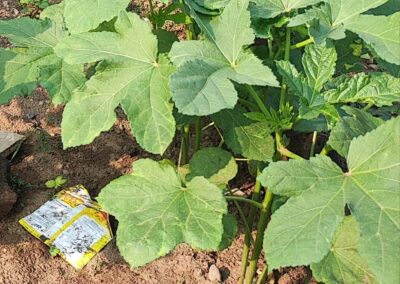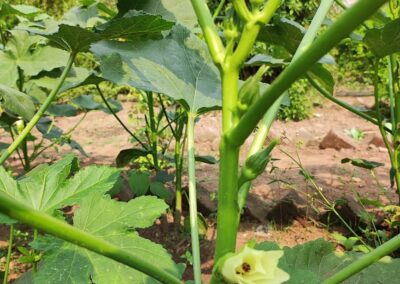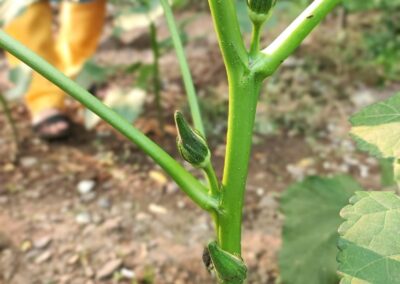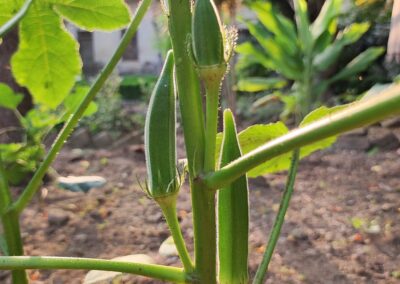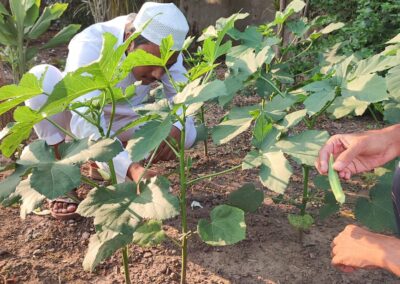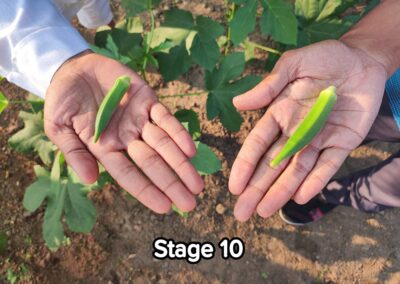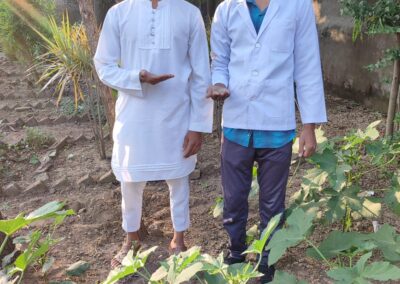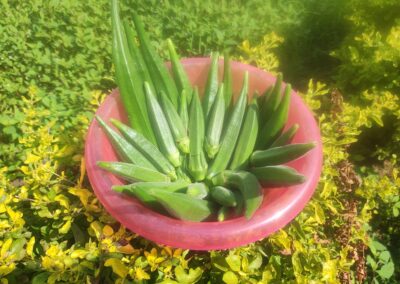Progress Report: Organic Farm Development – Okra Plant Growth and Development
Project Overview
As part of Saifee Golden Jubilee Qaderia College’s commitment to sustainable agriculture, the Botany Department initiated an organic okra cultivation project. This initiative provides hands on learning in organic farming practices, fostering student engagement, environmental responsibility, and practical agricultural skills.
Objectives
- Promote sustainable, eco-friendly farming techniques
- Provide students with hands-on experience in cultivating organic crops from seed to harvest
- Observe and document the growth stages of okra for educational and research purposes
Faculty and Personnel Involved
- Head of Department: Prof. Shaakira Ansari
- Supporting Faculty: Miss Sakshi Jadhav
- Operational Support: Shree Lakshman Jadhav and Botanical Garden Caretakers
- Student Observers: Assigned students monitor the growth of specific plants, with a current focus on okra.
Botanical Description of Okra Plant
- Scientific Name: Abelmoschus esculentus
- Common Names: Okra, Lady Finger, Bhindi
- Classification:
– Kingdom: Plantae
– Division: Magnoliophyta (Angiosperms)
– Class: Magnoliopsida (Dicotyledons)
– Order: Malvales
– Family: Malvaceae
– Genus: Abelmoschus
– Species: esculentus
Stages of Okra Plant Development
| Stage | Day | Description |
| Seed Sowing | Day 1 | Seeds sown in nutrient-rich, well-drained soil to support germination |
| Germination | Days 4-7 | Seeds absorb water, and tiny roots and shoots emerge. |
| Seedling Stage | Days 7-14 | Seedlings appear above ground with cotyledons; plants display healthy green color, monitored for moisture and nutrient needs |
| Leaf Development |
Days 14-21 | True leaves begin forming, with steady vertical growth supported by nutrient-rich soil and sunlight |
| Vegetative Growth |
Days 21-35 | Rapid growth observed with multiple leaves and strong stems indicating a robust vegetative phase. |
| Flowering Stage |
Days 35-45 | Yellow flowers appear, signaling the transition to fruiting; pollination occurs naturally. |
| Fruit Development |
Continuous | Okra pods form from flower sites, growing firm and vibrant green, indicating healthy development. |
| Maturity | Full Growth |
Once mature, the okra fruits are ready for harvest. |
| Harvesting | As Matured |
Okra pods harvested by student observers, concluding the plant’s growth cycle and providing organically grown produce for educational purposes. |
Student Involvement
As part of the organic farm initiative, students actively participated in observing plant growth and health. Each day, students recorded data on plant height, leaf development, budding, and any visible changes. This hands-on involvement helped students understand the importance
of observation in agriculture, analyze growth patterns, and recognize environmental impacts on plant development.
Outcomes and Benefits
- Educational Value: Students gained comprehensive knowledge of organic okra cultivation and the specific requirements at each stage of growth.
- Sustainable Farming Practices: The project underscored the importance of organic methods in reducing environmental impact.
- Economic and Practical Skills: This initiative provided students with a practical framework for eco-friendly farming, potentially beneficial for future agricultural ventures.
Conclusion
The organic okra development project demonstrated the principles of sustainable farming. Through this initiative, students gained practical agricultural training, deepened their understanding of eco-friendly practices, and contributed to the college’s organic farming goals.
The successful harvest of high-quality okra was a testament to the dedicated observation and care by our students and faculty team

